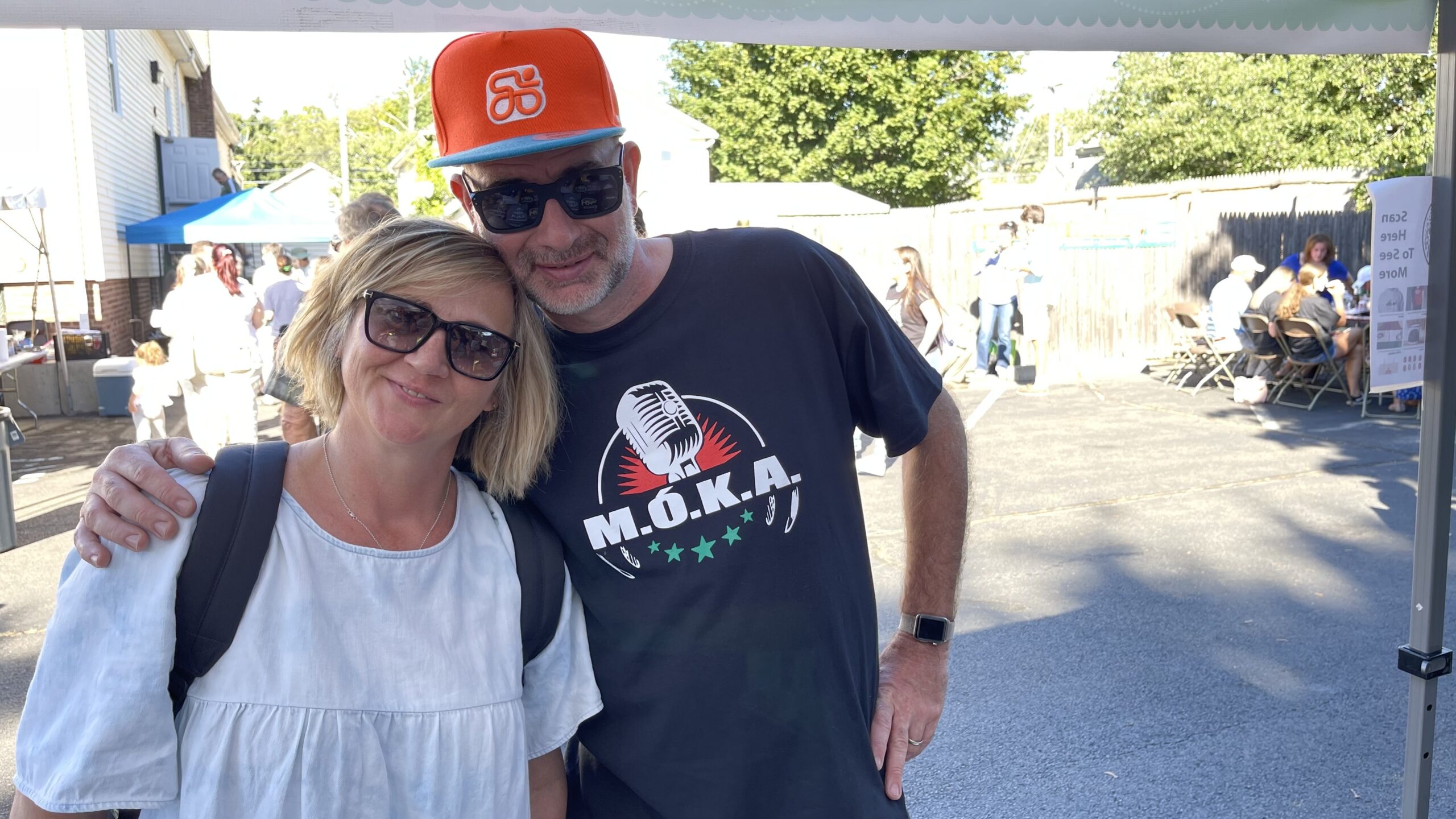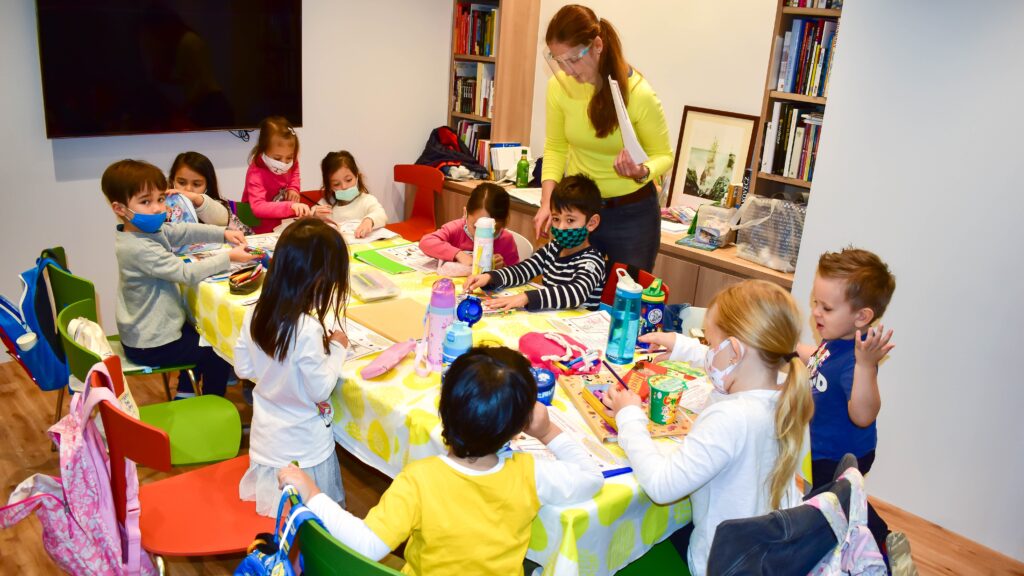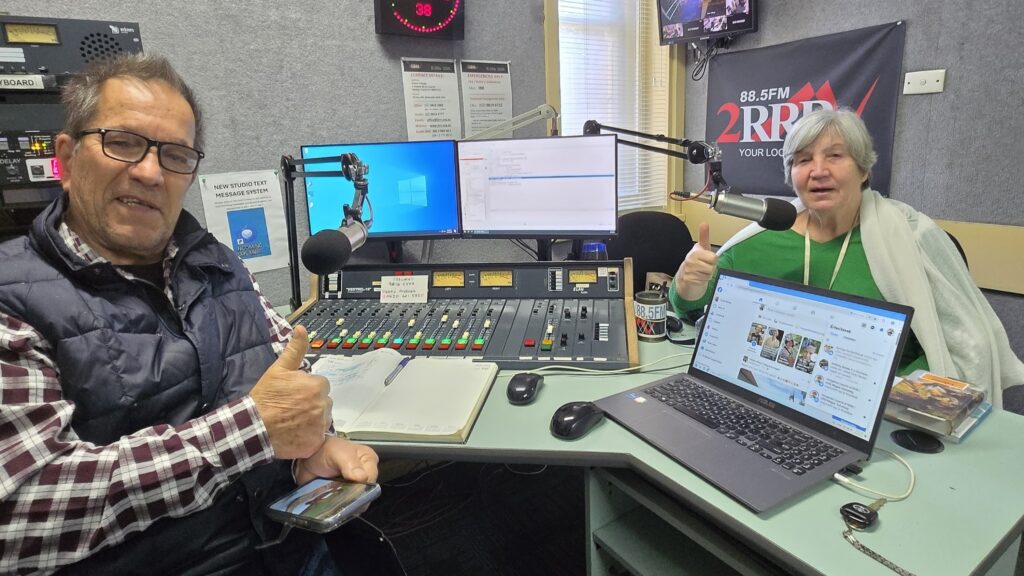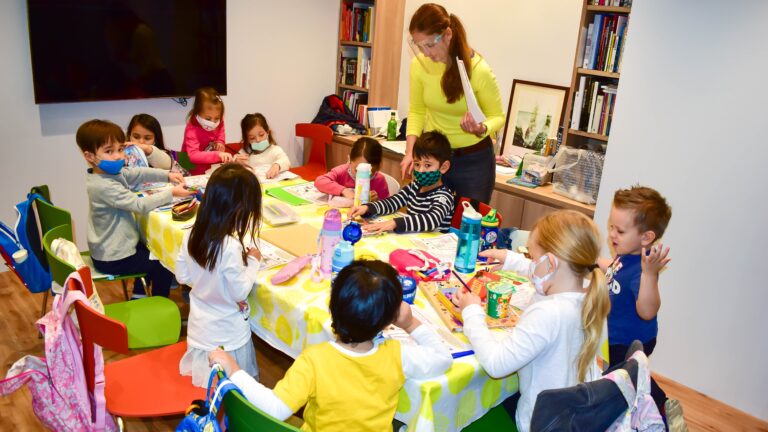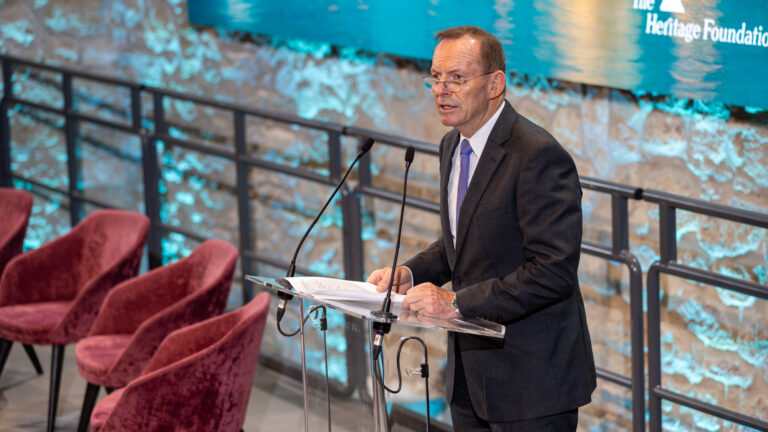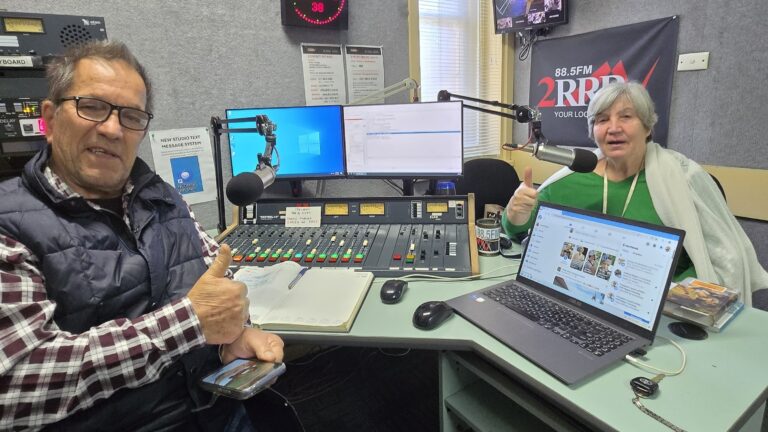Péter Kiss came to America as a young adult, due to unusual family circumstances. After a variety of jobs and a failed marriage, he settled into his current job and family. After years of no contact with Hungarian Americans, he visited the Garfield Hungarian Club almost by accident, where he later organized and led many events, including dance parties for many years as a DJ. During the Covid pandemic, he launched the MÓKA (Great Adventures of Hungarians in America) podcast, which is now at session No. 246.
***
When and how did you come to America?
I came to America in 1993, when I was 19. In 1982 my biological grandfather, who I didn’t know about until then, came to Hungary for a relative’s funeral. That’s when we—me and my dad—met him for the first time, and found out that Károly Kiss, who I thought of as my grandfather until then, was in fact my dad’s stepfather. István Tolnay, my biological grandfather, had run away to America after he got my 16-year-old grandmother pregnant in 1953. Grandpa Károly did not only raise my dad, but also his half-brother. In 1982 my Grandpa István invited his son, my dad, to America. It was still communism in Hungary at the time, so my dad had a hard time getting a visa. Grandpa Isván had a dubbing company called Multi Check; he produced multi-track sound effects for various movies, including Star Wars. After my dad came to visit and stayed with him in 1983, there was a secret plan—which I didn’t know about as a 10-year-old—that the rest of our family would also come to America the next year and stay here. We did, but my grandfather’s wife didn’t support this arrangement, so three of us—my mom, me and my brother, who is a year junior to me—returned back to Hungary. After that it was ‘quiet’ for a few years, and my mom brought us up on her own. Around 1987–88 we started visiting my dad during summer vacations and helping in his business, which we really enjoyed. My dad worked with my grandpa for a while, then with my uncle, and later he started his own pool company. Once, when applying for a visa, the officer asked if I’d also work in America and I enthusiastically replied, ‘Sure, I’ll help my dad at his pool company.’ Of course, the application was rejected immediately. My dad then applied for a green card for me, which at that time he had no clue about. My brother settled in America before me during his high school years, but I first finished high school, and only moved afterwards. We lived in Oakland, New Jersey and beyond family members, I hardly met any Hungarians until 2000. I worked with my dad for a while, and I also worked as a gas station attendant or drove a limo—there was no Uber then… I’ve been working as a delivery man at a post office since 1997, walking nine miles a day in snow, mud, heat, cold, rain and dry weather…
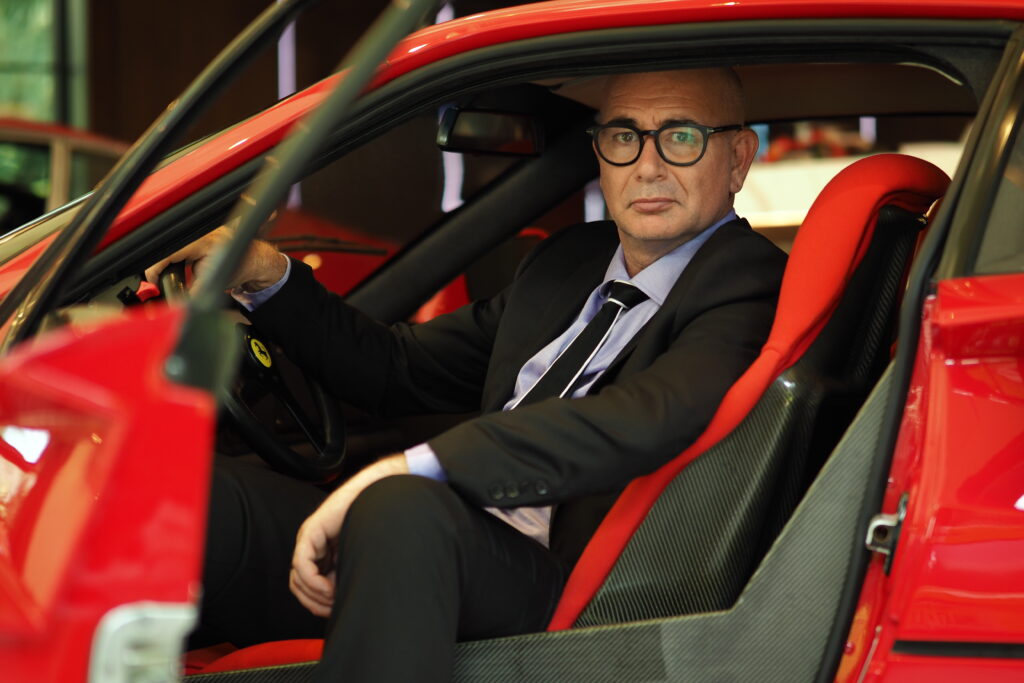
Why have you been working so much? What have you been saving for?
I’ve always been a workaholic, while I’ve never been particularly interested in money. I have Asperger syndrome, so I constantly must be on the road and do something, otherwise I get tired… In short, I can’t sit still.
You said you hardly met any Hungarian Americans until 2000. What happened then?
I had two friends from the old days from Békásmegyer, Hungary—a district of Budapest where we lived before we moved here—who also lived in New Jersey at the time, and one of them invited me to the Garfield Hungarian Club, because— as I was told—‘it’s full of Hungarians.’ I went there, and another guy I met there told me: ‘We heard you were a DJ in Hungary, so help us throw some dance parties here too.’ That’s when and how we started organizing dance parties in the Club.
Were you really a DJ before? Why and where?
Yes, I worked as a DJ and worked at many places, most recently at Gyöngyhalász in Fonyód, Hungary and the nightclubs Randevú, Hysteria and Topáz. I became a DJ when I started to help László Gonda, who was a quite well-known Hungarian DJ, and I went to a lot of places with him while he taught me the ins and outs of the business. But my favorite was Tamás Jutasi. When I found out where he lived, I knocked on his door and asked him to teach me how to DJ. Why? I don’t know… There were no musicians in the family. Maybe it was just that I wanted to create a good atmosphere for people. I remember my first experience of that was in primary school, when we had music in the basement—I think I have liked the idea since then.
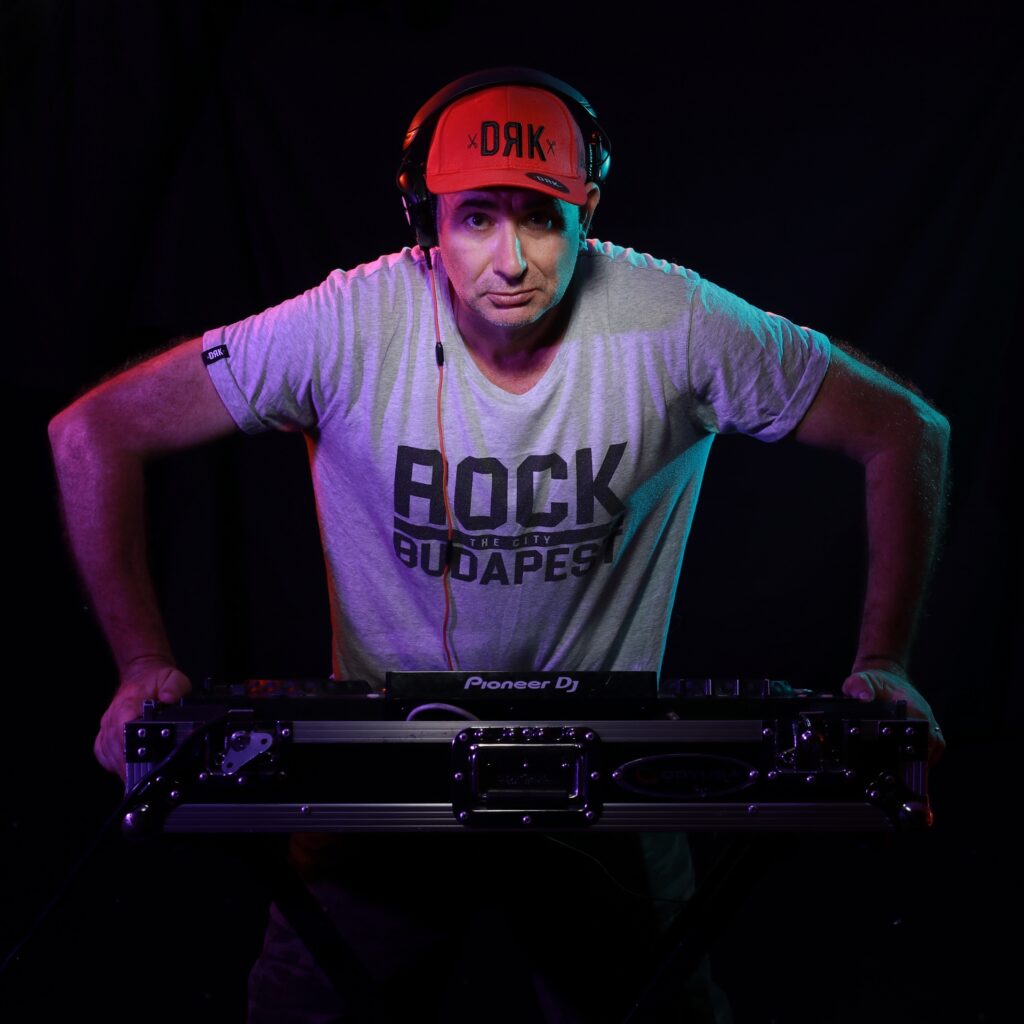
So you became a DJ at the Hungarian Club, officially known as the American Hungarian Citizens League in Garfield, New Jersey…
Yes, but back then, the Club belonged to the ‘senior generation’; so we, young people, had to rent it for our events. I remember how we raked together the rent by five dollars to be able to have it. But it was worth it, because about 200 people showed up at our events. There were a lot of Hungarians living in the area and there were no other Hungarian clubs like this with dance music. But over time, as it usually happens, some saw the success and wanted their share, pushing even those out of the place—and business—who originally brought them in… In my case, it happened that some other people I had brought in started organizing competing events at the same venue and with my own equipment. When I called them to account, they said they would give it back after the party. This happened in 2002, when I stopped and forgot about the Club and Hungarians for a while…
Did you start a family in the meantime?
Yes, I got married to an English au-pair named Lucy and we had a child, Zachary. But my wife cheated on me, so we divorced, and she moved back to England with our little son. We kept in touch for a while, but we slowly drifted apart… After a while we had nothing to talk about with my son, because he was one or two years old when they left, and I didn’t really have many memories of him. I know that’s my fault, too…
While my divorce was underway, my current wife Edit’s fiancé died in Hungary, and she was left alone with a few months old baby. When a friend mentioned her story to me, I immediately contacted her, since I had known her. We had had a brief, but passionate love affair just before my moving to America. I met her on her birthday on 20 June 1993, but then I had to leave on 21 July. We kept in touch over the phone for a while, but it wasn’t so good; even though she once ran up a phone bill of 200,000 forints—a small fortune at the time—because of me; and her dad chased her with his slippers for it…
So you ‘lost’ a wife and a child and ‘got’ another within a few months?
Yes. When I called Edit, we started talking, then I travelled home, we got back together, and the next time I travelled back home again, I proposed to her, in front of everyone, at the baptizing ceremony of her little son, then six-month-old Bálint. So he is not my biological child, but I love him as much as I love her younger sister, our daughter Luca. We got married on 24 May 2002. Edit came from an affluent family. After a few months, as soon as she got her green card, she moved over, but when she entered my house, she said: ‘Take me away from here…’ I was living in a bachelor apartment, while she had lived in very different circumstances before. But we started to rebuild our lives nicely.
Since the postal job wasn’t enough financially, I set up a painting business to support the family. When Edit became pregnant with Luca in 2004, we brought my mother out to help. Unfortunately, she got cancer shortly afterwards; she recovered at first, came back to us after a couple of years, but then she was gone in two weeks. Luca has since finished high school, and is now studying at a medical school, becoming an ultrasound technician. Bálint went to college for one semester, then dropped out and moved to Norway. He has always loved adventures, and I encouraged him to pursue those now while he is young, not when he is 30 or 40 and regrets missing out on them.
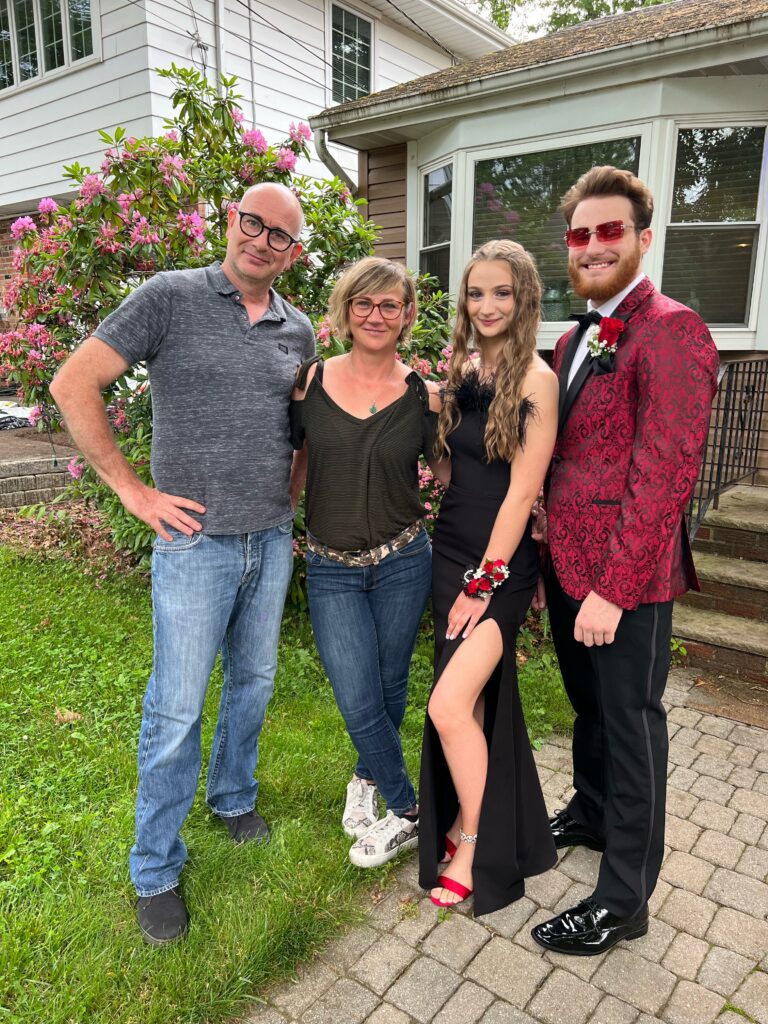
Both of them went through Hungarian weekend school and scouting, right?
Yes. As I used to say, that’s the fate of Hungarians living here: American school, homework and extra lessons from Monday to Friday, and Hungarian weekend school on Saturdays, where children like Luca, who was born in America, learn to read and write Hungarian well, and also learn about the history and geography of Hungary. After school, they continue with Hungarian scouting, basically practicing what they’ve learned at school. I think this is great; and it depends on the perseverance of the teachers and parents who volunteer every weekend. In our case it was mainly thanks to Edit, I had to work as a postman also on Saturdays. Moreover, growing up as a city kid, I didn’t even know what scouting was, I had not much clue about Hungarian folk traditions either—I’d never been to a pig slaughter or a traditional wedding, I’d never done folk dancing… And here lots of Hungarian children go to Hungarian weekend schools, folk dancing lessons, scouting… I think we are much more Hungarian here than many in Hungary, because we must cling to these unique opportunities, as there is nothing else to help keep our Hungarian identity.
What about Sundays? I often see Edit in the church, but you less so…
When I was young and didn’t know any other Hungarian Americans beyond my immediate family, I used to go to the nearby American church. I am a believer, because I believe in God or a supreme being, but less so in the church as an institution… I don’t think all clergymen are perfect either. That said, I loved the previous parish priest in Passaic, Father Laci Balogh, as well as the current one, Father Imre Juhász, but I hate people who use Christianity as a cover-up. I’m not talking only about Hungarians, but there are many Hungarian Americans who hide behind the mask of Christianity, too.
…and that discourages you from going to church regularly?
No. I think that if I have God in my heart, I don’t need to go to an institution to meet him. Besides, I’m always on the road on weekends…
You work as a DJ as well as produce podcasts. How did these get started?
Around 2010–11 the Hungarian bookseller Tímea Zsédely alerted me that we should save the Hungarian Club in Garfield, because they had about 60 thousand dollars in debt, events were rare and only few people attended them, therefore we would lose it. They called a meeting, where at least 50 of us showed up. We solved the future of the Club by having an elderly couple, aunt Kati and uncle Józsi Petőc take the lead—they were the living connections with the past of the Club—and we, the young(er) people, worked a lot. We organized picnics in the summer, balls and several other events such as duck dinners, pig dinners every month, and regular weekday dinners on every Wednesday and Friday. I did the dance parties, which made the most money with the least amount of work invested. After a while we started to invite performers from Hungary, which was financially very challenging, but a lot of people were interested to see the live acts.
The Club scene really took off for a few years, but it all collapsed when the Covid pandemic hit in 2020. Members of the senior generation haven’t been back since; many have also passed away in the meantime, while many of the younger people have moved back to Hungary during these last few years. My generation is getting older and don’t go to many of these events anymore… There are still events nowadays, but much fewer. In the summer we still have monthly picnics, but parties only occasionally. We don’t celebrate national holidays separately, because we used to go to the Hungarian churches in Passaic, but nowadays we can only visit the Catholic church, as the Reformed church was closed. These days 50–100 people turn up at a party. It seems that everyone is getting tired of it…
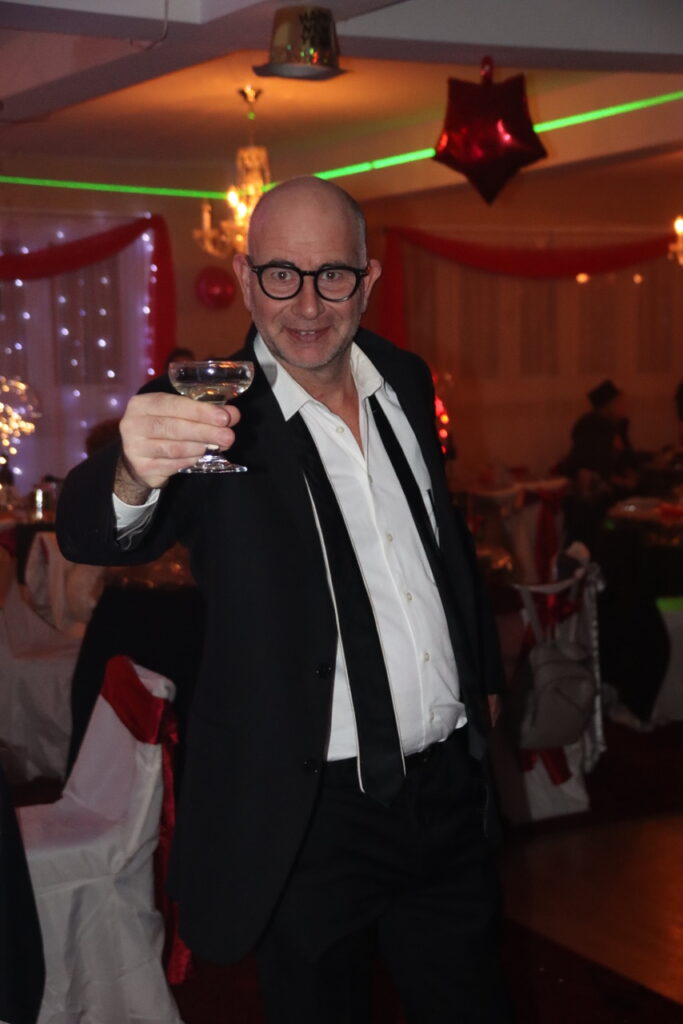
Is there no younger generation to take over?
Not really… Aunt Kati was the president for quite a while. Then I was voted in. I was in charge for two or three years, but I never really cared about positions, so after a couple of years I said: ‘I’ll stay there and do everything the same as before, as long as someone else is president.’ That’s when Melinda Udvari took over. I don’t know how long we can keep the Club going, but my strength is that if there’s a problem, I’ll always find a way to solve it.
Do you feel you can still keep the spirit going?
Yes, but it’s getting harder and harder. And you know, you don’t get tired of the work itself, but of malicious gossips like ‘You have a new car… How much money did you steal from the Club?’ Once, when a Moldavian group rented the Club for an event, a Hungarian woman, somebody who doesn’t even visit the Club, let alone ever organized anything, posted on social media: ‘Look, this is the Hungarian Club full of gypsies, and there are no Hungarian events…’ I never experienced these kinds of vicious attacks previously, when I was not in contact with Hungarians…
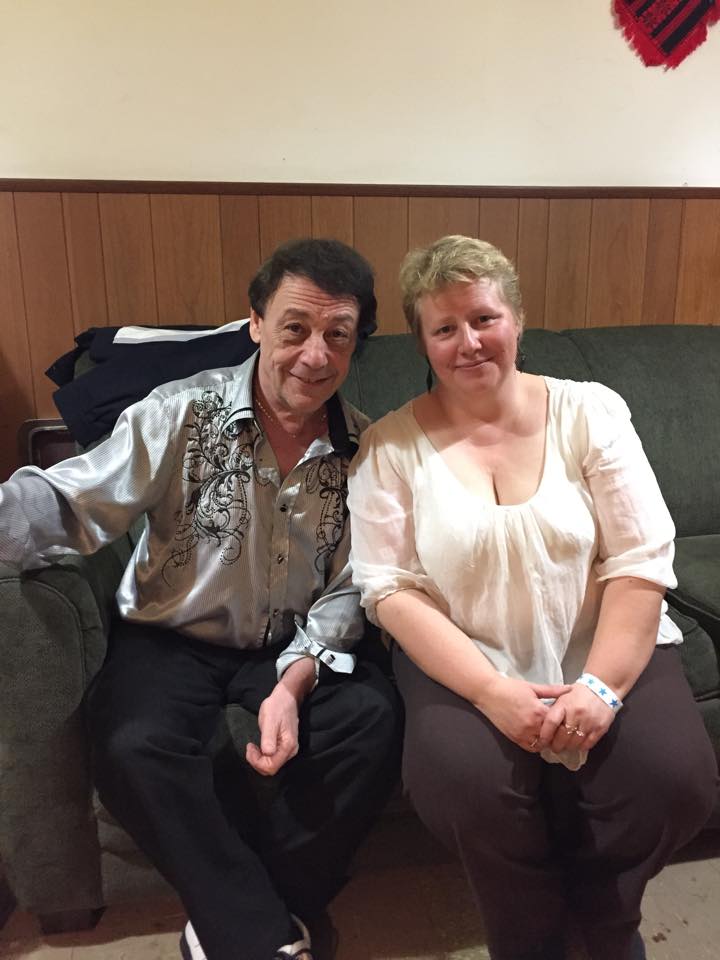
Is that when you started doing something else, i.e. the podcast?
Yes. I came to the point where I felt I needed to change, and then the Covid pandemic came along. As I said, I can’t stay still… Since the last song of my set at each of my recent dance parties was the song ‘Nélküled’ (‘Without You’) by the Hungarian band Ismerős Arcok (Familiar Faces), I figured out and announced on social media that people should record parts of it, and I’d cut and create a medley video that would be ‘our’ song holding the community together during the pandemic. It went viral at the time, with about 300,000 views. Then in April 2020 I figured out that I’d do a live show on social media and debut our song there. It was also very successful and a lot of people watched it. And then I approached my friend Attila Patkós, who lived in New York City and worked at Radio 88 in Szeged back in Hungary, to do a live show together. When I was a little kid, at my grandmother’s house at noon a Hungarian radio show titled A song for a good lunch was played—that’s what made me name our show A song for a good joke. Because we always had a lot of jokes. But as soon as we started inviting guests, the show started to get serious…
You were getting more and more serious about the show, and I guess the listeners were too, weren’t they?
Yes. And because we seemed to be controlled by social media, I suggested we turn to YouTube. But there I didn’t want the same title for the podcast, and that’s when I came up with the idea: let’s call it MÓKA (‘joke’ in Hungarian), which is the abbreviation of Magyarok Óriási Kalandjai Amerikában (Hungarians’ Great Adventures in America). By now, we are at part No. 246…
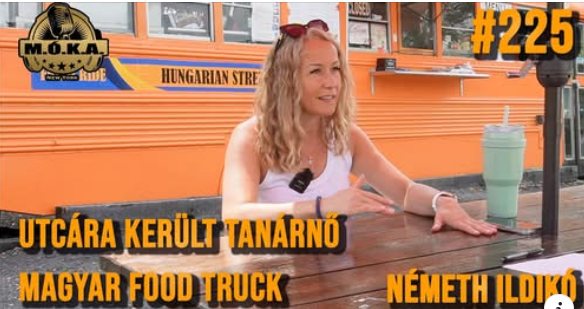
How do you choose your interviewees? If someone notable from Hungary visits the East Coast, you try to contact them, but what if there’s no one here?
There’s always someone here. Even now, I have about ten or twenty people on my waiting list. There are a lot of Hungarian people in this area and all over America. I could list ten or twenty of them for you at any given time. And when we travel somewhere, whether invited as DJs—I’ve been to California, Florida, Georgia, Ohio—or with the family (you can imagine how much my wife loves that I’m working during our vacations), then I always meet people I can interview, combining the pleasant with the useful. I’m going to do the same in Florida during the next few days. Edit is not coming, because she knows it’s not going to be a real vacation…
Can you name some of your interviewees? Who impressed you the most?
I’m attracted to people who have come out of some kind of difficulty in a positive way. The first person who comes to mind is Arlett Bencsik, who had her leg cut off by a train and still lives a happy life. Then there is Judit Vékony, whose son died in an accident at the age of 26 and she was able to pull herself together after that. Or Barbi the Cleaner, aka Barbara Fodor, who comes from a very difficult family background. After she moved to America, her boyfriend committed suicide and she was in a very bad mental state, but then started cleaning very badly worn flats for free, helping other people out of poverty and depression. She’s been doing it ever since and basically lives off YouTube ads and sponsors. There was also a fascinating life story by Captain Hufnagel, aka Péter Szekeres, who is an airplane pilot and had his own airline in Indonesia; I learned a lot from him in the technical field as well. Then there is Ádám Benkő, who exported Trabant cars to America.
I know from my own experience that it takes a lot of time and energy to organize all these discussions, which you also do on your own and on a voluntary basis. After all, you’re not sitting in a studio where your secretary is organizing the next interviewee, are you?
Yes. You can only do this if you put your heart into it. DJing is paid work, although I work for friends for free, but the podcast is entirely a hobby. I don’t even dare counting it, let alone telling my wife how much it costs—five or six hundred dollars a month, not including travel cost… Of course, you can do it cheaper, but I don’t want to. I should add: if I remember to apply, we periodically get some grants from the Hungarian government, too.
And yes, there is a lot of groundwork: if someone is interested, you must contact them and hope that they are interested and open up to us, because not everyone is willing to do that. For example, there is a girl who is a cancer survivor whom I’d really like to talk to, but she’s not willing at this point. I’m still insisting on her as I think it’s very important to show people that you should never give up. If someone says yes, then you have to be a cameraman, a sound engineer, an editor, etc. all in one, then try to write a summary of the conversation and add a photo that people will notice and of course promote it cleverly…
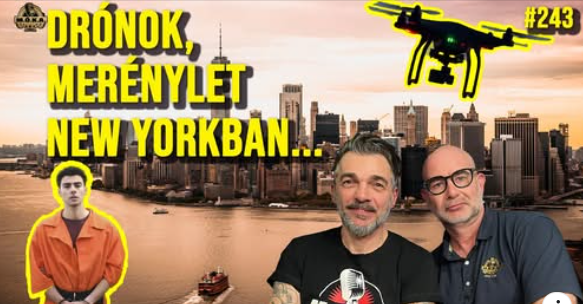
You said you have a long list. Anyone you want to mention from there?
Well, only very carefully, because what if it doesn’t work out…. People I’d really like to reach out to include teacher-performer András Lincoln, politician Sebestyén Gorka or animator-producer Gábor Csupó.
Do you have any secret plans or desires that you’d share?
Unfortunately, no. As a matter of fact I used to always know what I wanted and I’d move forward accordingly. But these days I’ve somehow lost my thread and my dreams. I turned 50 last year and now I need to figure out my next 50 years…
Read more Diaspora interviews:

